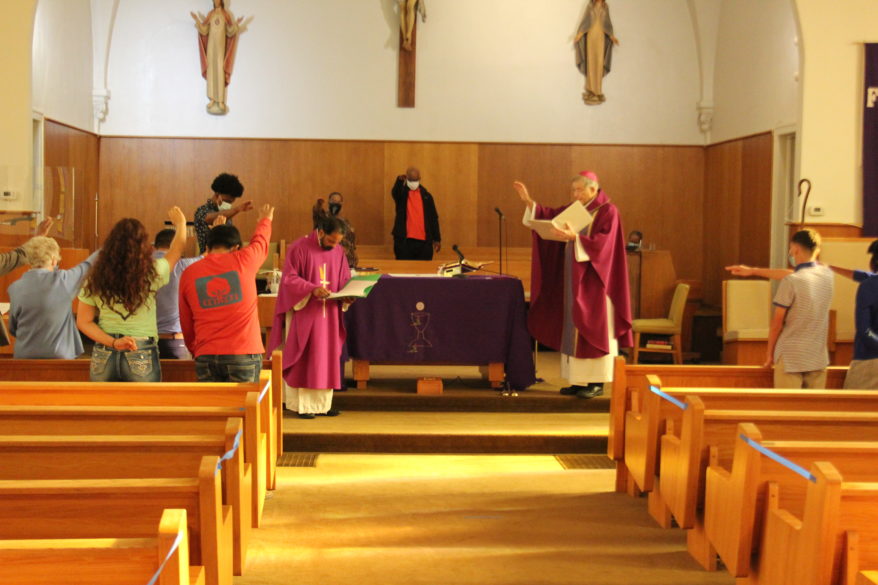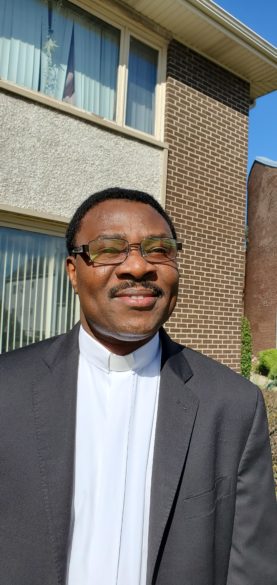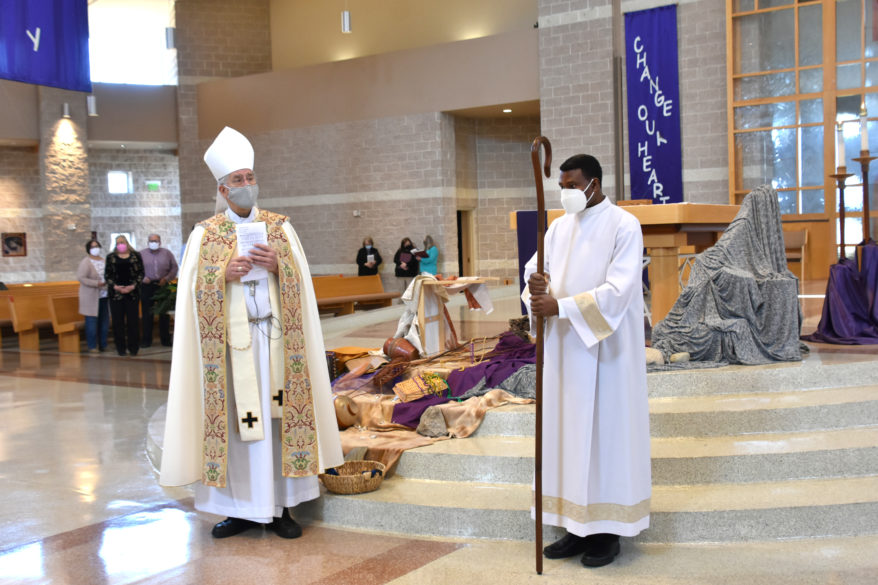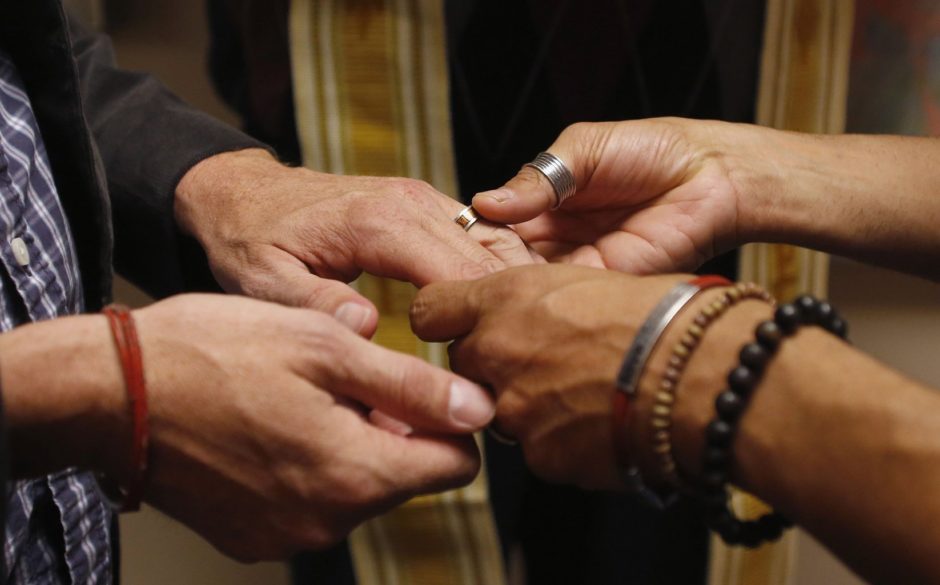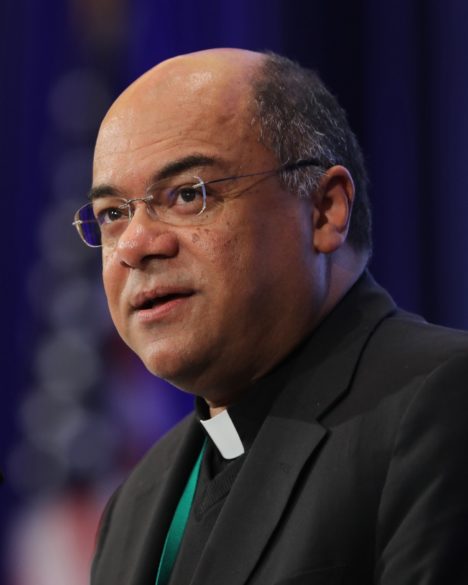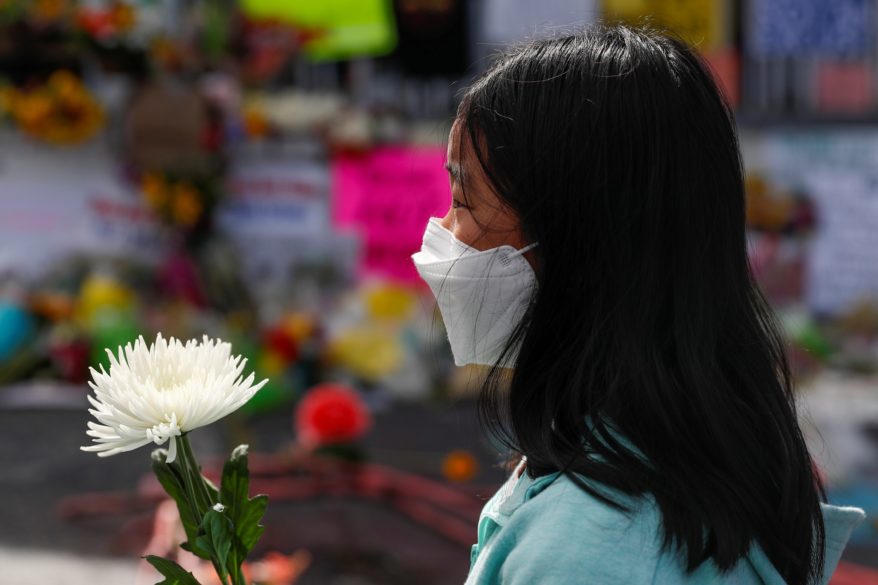SPIRIT AND TRUTH
By Father Aaron Williams
When the Old Testament readings and their corresponding psalms and canticles are read, one of the more dramatic moments of the church’s liturgy occurs: the return of the Gloria. There are some interesting rubrics which detail this moment of the liturgy. The Roman Missal calls first for the priest or a cantor to intone the glory (i.e., to sing the first line). Then, the organ is directed to play in a festive manner while bells are rung and the altar candles are lit. In the older form of the Mass, it was not permitted for images to be unveiled or for flowers to be used until the Gloria at the Easter Vigil, so servers had to rush at this moment to unveil everything and set out the vases of flowers before the Gloria had concluded.
The liturgy is often meant to paint a picture for us of the mysteries we celebrate. Traditionally, the return of the Gloria at the Vigil was meant to mark the ‘moment’ of the Resurrection in our liturgical celebrations. There is a nice spiritual meaning to this, that just as the angels sang ‘Glory to God’ at the birth of Christ, it is fitting that we sing the same at His rebirth. This was more starkly represented in the older liturgies used in Holy Week when the chanting of the Gloria also marked the time when the priest would change from the violet vestments of Lent into the festive white and gold vestments of Easter.
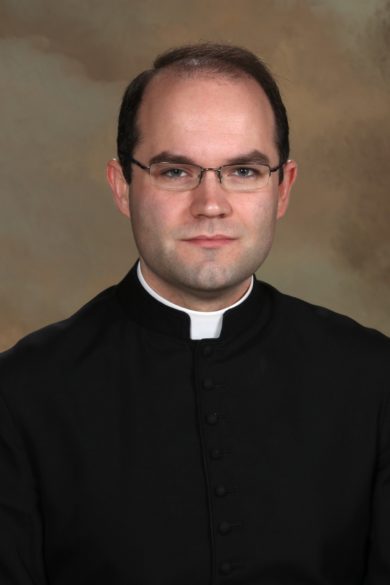
The liturgy keeps this sense of drama when, just a few minutes later, the Alleluia also makes its return. The Roman Missal calls for the priest or cantor to chant the Alleluia with the people repeating it back. Then it is sung a second time, but this time I step higher. And again, a third time another step higher. This elevation of the key of the Alleluia is meant to symbolize the Rising of Christ, and our eager desire to praise him with the Hebrew ‘hallel’ — ‘praise be to God’.
The modern form of the Mass moves the Baptismal rite from its traditional location before the Gloria to after the homily. This seems a fitting change so that once we have both heard and reflected on Our Lord’s own rising, the new members of the Christian community then experience their own share in the death and Rising of Christ in holy Baptism. In ancient times, the catechumens would have, up to this point, assembled in a separate building where they would be baptized before being brought into the main body of the church. Many of these ancient baptistries were designed with eight sides so symbolize Christ’s rising as the so-called ‘eighth day of creation’. Even today, it is common for baptismal fonts to be designed with eight sides for this same purpose.
The ritual used to bless the baptismal font contains an odd custom, the meaning of which is likely lost to most people. During the prayer of blessing, the priest is directed to plunge the base of the lit paschal candle once (or three times) into the font, and then to leave it in the water until the prayer is concluded. This is meant to symbolize Christ’s own baptism. The prayer of blessing connects Christ’s baptism to blessing the water of the Jordan River: “so that the very substance of water would even then take to itself the power to sanctify.” The Paschal Candle is always meant to symbolize the risen Christ to us, and so it is fitting that when the water of the Baptismal font is blessed, the Paschal candle be symbolically ‘baptized’ as well.
In the modern form of the liturgy, the remainder of the Mass is much the same as any Mass. This wasn’t the case prior to the liturgical reform of 1969. Traditionally, the Easter Vigil wasn’t actually considered an Easter Mass at all — that was saved for Easter morning. And, so the remainder of the Mass lacked some of the normal elements which we would expect such as music at the offertory or communion as well as the sign of peace. These would make their return the next morning. The return of the sign of peace on Easter Day proposes a very interesting piece of liturgical drama in itself.
Traditionally, the ‘Kiss of Peace’ (as it is referred in the Roman Missal) was omitted on Holy Thursday night, since it was by kiss that Our Lord was betrayed. This omission would also occur on Good Friday and Holy Saturday. But, our Lord’s first greeting to His Apostles after the Resurrection was “Peace be with you.” Therefore, traditionally the liturgical rite of peace was saved until Easter morning.
Even though this is not a mandated rubric in the new rites, the rubrics of the Roman Missal allow for the Sign of Peace to be omitted in any Mass. Perhaps some parishes would be interested in adapting this small bit of symbolism by omitting the Sign of Peace on Holy Thursday and Holy Saturday. If this is done, it might be helpful for the service leaflet to be printed with a note about this omission so that people may be made aware of the symbolism.
The Easter Vigil concludes with the dismissal “Go forth, the Mass is ended, alleluia, alleluia.” This dismissal is used at all Masses until the Second Sunday of Easter, and again on Pentecost. Tradition strongly recommends that this dismissal be sung.
(Father Aaron Williams is the administrator at St. Joseph Parish in Greenville.)


